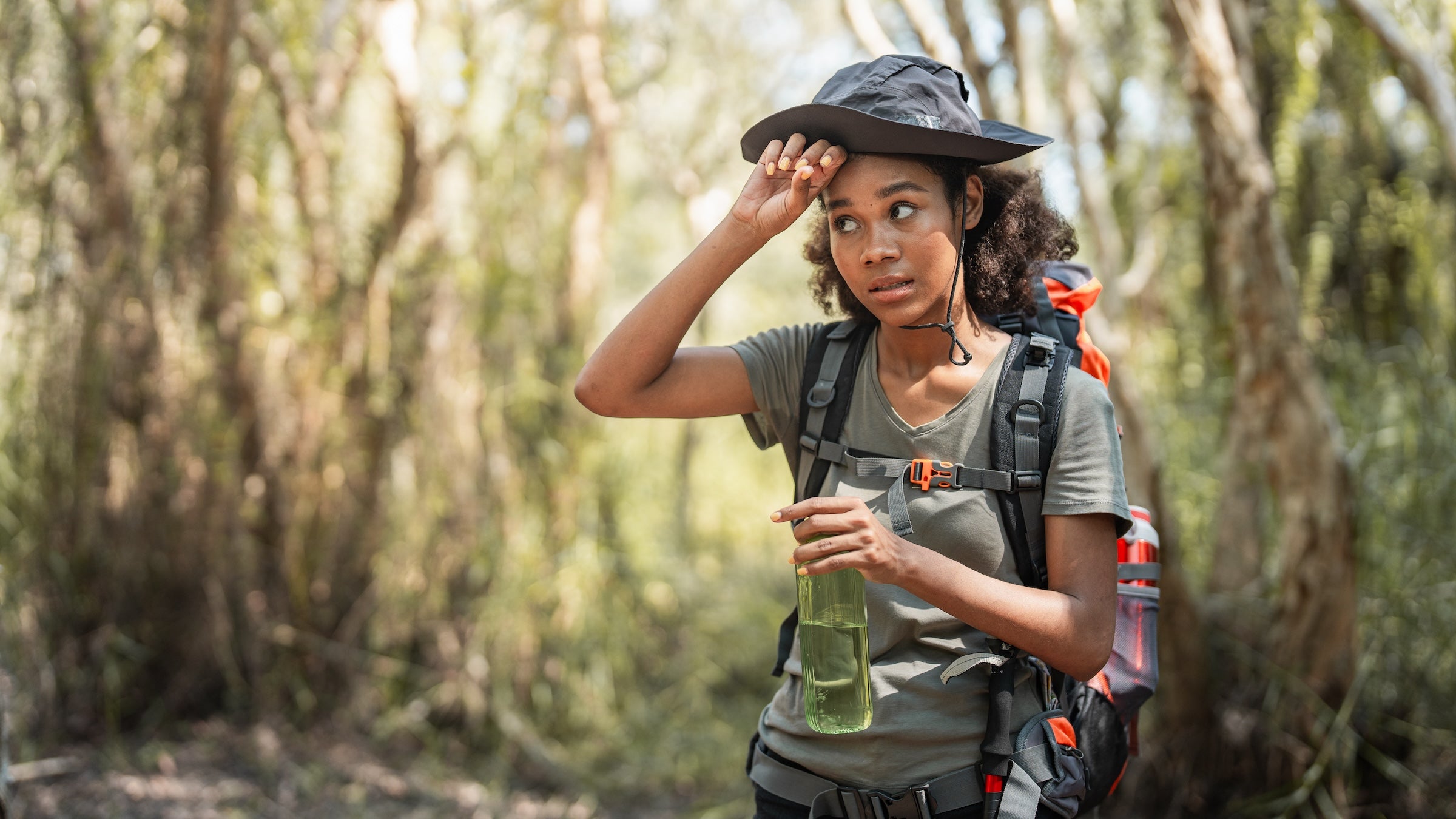It seems like every summer brings a fresh hell—literally—of , record-breaking temperatures, and meteorological anomalies you’ve never heard of before (what the heck is a ?). But try telling experienced backpackers and hikers not to hit the trails when the mercury is popping and see what happens; a little thing like a heat index over 110°F won’t keep some of us inside.
Unfortunately, that can, and sometimes does, result in dangerous situations such as heat illness, which can be uncomfortable at best and . So what’s a hiker to do when the summer sun turns their playground into something that resembles the surface of Mercury? Acclimatize.
Your body can and will acclimate to hotter temperatures, says David Fifer, associate professor of emergency medical care at Eastern Kentucky University and wilderness paramedic and coordinator of RedSTAR Wilderness EMS in Powell County, Kentucky. It just takes time. After some heat training, you’ll feel less miserable out there, you’ll perform better, your heart will beat more efficiently, and your risk of heat illness will decrease. In some states, temperatures will stay high for the next several months, so if you start heat training now, you’ll be able to comfortably hike through some late-summer heat.
What Is Heat Acclimatization?
By , you’re encouraging your body to produce more , which kick into high gear to protect your cells—including those in your heart and muscles—from damage under stress (such as conditions during brutally hot days).
As this happens, a few things occur. First, you’ll sweat more efficiently. You’ll start sweating faster and also produce more sweat, explains Seth Collings Hawkins, associate professor of emergency medicine at Wake Forest University and a master fellow of the Academy of Wilderness Medicine. This helps you cool down faster; your body gets rid of excess body heat as it vaporizes the sweat.
Circulation also stabilizes the more you acclimatize your body to heat. This means your heart won’t have to work as hard, your core temperature and heart rate won’t be as high, plus blood gets pumped to your muscles more efficiently.
How Do You Acclimatize?
, suggests Fifer. Start with easy, 20-minute walks outside in the heat, then every day (or every other day), increase that time by 20 minutes for a week or two. After that time, your body will start to get used to the new strain on your system. You don’t have to work hard to acclimatize: Your body adapts to the heat if you regularly spend time in a sauna or a hot bath, too.
How long it actually takes to fully acclimatize depends on you and your body. “Your baseline fitness is going to be a big factor in your acclimatization plan, and the more fit you are, the easier it’s going to be,” Fifer says. If you’re at peak physical fitness, some studies suggest your body may adapt to heat training faster.
But if you’re out of shape, suffer from heart issues, or are overweight, heat illness can strike more rapidly, acclimatized or not. And if you’ve been skipping a lot of gym sessions or have spent your whole summer so far indoors, planning a backpacking trip on the hottest weekend of the year isn’t a good idea.
Either way, if you’re planning any extreme activities, like a mid-summer thru-hike in the desert, Fifer says it’s wise to consult with a physician or knowledgeable athletic trainer first. Especially because a wide variety of medications—including SSRIs for depression and stimulant supplements for weight loss—can interfere with your body’s ability to process heat.
Are There Limits to Acclimatization?
Acclimatizing your body doesn’t necessarily make it invincible. Hawkins cites studies that suggest that, no matter how acclimatized you are, your body can’t sustain a healthy core temperature when you’re in an environment hotter than 88°F and at 100 percent humidity. In 50 percent humidity, the limit is closer to 122°F, though the combination of temperature and exposure duration can both affect how well your body can acclimatize.
Speaking of humidity, heat adaptation in dry climates doesn’t tend to translate to adaptation in humid climates and vice versa. So if you can, train in weather you’re expecting to experience on the trail.
Don’t bail on time outside when it’s hot. Some studies suggest that spending a week or more away from the heat can be enough to set progress back at least a bit, meaning you’ll have to spend a few days re-adapting. On the upside, according to the CDC, kicking it in your air conditioned living room or at the movie theater doesn’t seem to affect acclimatization, so soak it up when you can.
Then, when you do head outdoors this summer, don’t forget to stay hydrated and pack .


